AI IMPACT
Culture | Society | Technology
OCT. 24, 2024 Illinois Rooms, Student Center East



OCT. 24, 2024 Illinois Rooms, Student Center East


AI invites a wide range of hopes and fears. Its potential raises as many questions as it answers, and often resides in binaries between utopia and dystopia; connection and disconnection; social benefit and exploitation. Conversations about AI are riddled with anxiety about its consequences for humanity. Inevitably, the dreams and nightmares rendered by the limits of our human imagination revolve around the same theme: will AI fundamentally alter the essence of what it means to be human? And the answer, despite the countless narratives of anticipation and apprehension, is the same: Only if we permit it to do so.
AI IMPACT is a day-long research forum hosted by the College of Liberal Arts and Sciences and convened by the Department of Communication. On October 24, we come together to discuss AI’s benefits and challenges. From deep learning to deep fakes, from robotics to avatars, from ChatGPT to human augmentics, from virtual influencers to socialbots and countless others, we draw from a broad multidisciplinary understanding of AI to investigate how AI supported technology can be used for the common good.
These themes drive our activities for the day, as we examine how AI technologies shape and are shaped by humans. Experts from UIC and industry will join us in keynotes and plenary conversation, as we question, discuss and educate ourselves and consider best paths forward. Maker spaces, playgrounds and literacy booths will provide ways for all of us to experience and engage with AI tech in ways that promote socially just uses of AI and reject repressive tech norms.


08:30-09:00 Breakfast
WELCOME | 9 AM
09:00-09:05 Welcome from Dean Lisa A. Freeman
SESSION 1 | 9:05 AM - 1 PM

09:05-09:55
10:00-11:00
11:05-11:30
11:35-12:00
12:00-01:00
01:00-02:00
02:00-02:25
02:30-03:15
IDEA Talks - Session 1
Keynote 1: Kate Crawford
Plenary 1: Nancy Baym x Steve Jones
Plenary 2: Raz Schwartz x Zizi Papacharissi
Keynote 2: Alondra Nelson
BREAK | 1 PM - 2 PM
Lunch + Maker Space and Playground Exploration
03:15-04:00 SESSION 2 | 2 PM - 5 PM
04:00-04:25
04:30-05:00
05:00-07:00
Plenary 3: Stacy Blasiola x Zizi Papacharissi
IDEA Talks – Session 2
Maker Space and Playground Exploration
Plenary 4: Rida Qadri x Elena Maris
Plenary 5: Brad Haggadone x Steve Jones
RECEPTION | 5 PM - 7 PM
Reception (East Terrace)
1
RACIALIZED INTELLIGENCE – Clare S. Kim
SEEKING THE SYNTHETIC SACRED: INDIGENIZING AI – Cindy Tekobbe
WHY WIKIPEDIA (STILL) MATTERS: LIMITS AND DRAWBACKS OF AI WITHOUT PARTICIPATION
– Zachary J. McDowell
THE LONELY ALGORITHM PROBLEM
– Samuel Hardman Taylor
CAN ALGORITHMS SING THE BLUES, OR, I KNOW IT’S ONLY AI BUT WHAT IF I LIKE IT? – Steve Jones
AI FOR SCIENCE – Venkatram Vishwanath
WHAT AI CAN AND CANNOT DO FOR DEMOCRACY OR (CAN AI SAVE DEMOCRACY?) – Zizi Papacharissi
SESSION 2

AI AND SOCIAL CONTEXT – Elena Maris
CODED CAREWORK: RACIAL JUSTICE AND THE FUTURE OF WORK IN THE AGE OF ROBOTICS – Anna Guevarra
COMPUTATIONAL IMPACT OF AI – Michael E. Papka
USING AI TO DETECT AI – Andrew Rojecki
ARE YOU A REAL HUMAN? VIRTUAL INFLUENCERS AND AI CULTURE – Donna Kim

TURING TEST BOOTH – Steve Jones + Graduate Students
REALITY REIMAGINED: EXPLORATION IN META’S
HORIZON WORLDS – Breigha Adeyemo
PROSTHETICS AND AI – Marty Heath
PRIVACY TESTS – PRIVACY AND AI – Kelly Quinn
VISUALIZATION OF PROTEIN-PROTEIN INTERACTIONS FOR DRUG DISCOVERY USING LLMS – Aaqel Shaik, Michael E. Papka, Shilpika, and Venkatram Vishwanath
AI ENGAGEMENT IN XR (MULTIMODAL AI) – Abdullah Ali, Ricky Massa, Aaqel Shaik, Michael E. Papka
WIKIPEDIA AND PARTICIPATION IN THE INFORMATION ECOSYSTEM – Zachary J. McDowell
AI, FACT-CHECKING AND DISINFORMATION – Mike Reilley
TRAIN YOUR ALGORITHM: TIKTOK – Abi Leveille and Olivia Sadler

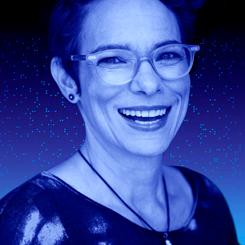
Senior Principal Research Manager at Microsoft Research
Nancy K. Baym joined Microsoft in 2012 after eighteen years in the academy, first at Wayne State University and then at the University of Kansas. A leader in the field of internet research, Baym was a cofounder of the Association of Internet Researchers and served as its second president. At Microsoft, she continues to conduct foundational research into the sociotechnical dynamics of how people make sense of new technologies and incorporate them into their lives, and how that reshapes existing technologies and leads to new ones. She also helps lead the cross-company New Future of Work research initiative. Baym’s publications include several books. TuneIn,LogOn:Soaps, Fandom,andOnlineCommunity, published in 1999, was one of the first monographs about online community and the first about online audiences. PersonalConnectionsintheDigitalAge (2010/2014) provides frameworks for thinking critically about the roles of digital media in personal relationships. PlayingtotheCrowd:Musicians, Audiences and the Intimate Work of Connection (2018), pursues this theme in the context of the increased blurring of professional and personal identities online. Co-authored with Jean Burgess, Twitter:ABiography (2020), develops a sociotechnical approach for understanding how social media platforms change over time. Her contributions to the field have been recognized with the Frederick Williams Prize for Contributions to the Study of Communication and Technology awarded by the International Communication Association, the naming of the Nancy Baym Book Award by the Association of Internet Researchers, and an Honorary Doctorate from the Faculty of Information Technology at the University of Gothenburg.
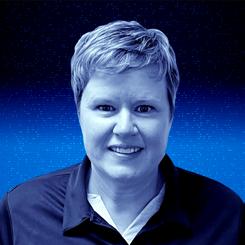
STACY BLASIOLA
Director of UX Research at Meta’s Reality Labs
Stacy received her PhD in Communication (class of 2017) and was a fellow in the NSF funded IGERT Electronic Security and Privacy program at UIC. Stacy’s focus on privacy led to multiple internships as a student and ultimately a career in industry. After interning in 2016 she began working at Facebook in 2017. At Facebook her privacy focus directed her career path, bringing her to work on such topics as Elections Integrity and the Facebook Privacy team. In 2020 she moved to the hardware side of the company to work on Virtual and Augmented Reality devices. She is currently the Research Lead for Privacy at Reality Labs.
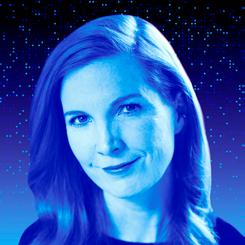

Research Professor at USC Annenberg in Los Angeles, Senior Principal Researcher at Microsoft Research in New York, Honorary Professor at the University of Sydney, and the inaugural Visiting Chair for AI and Justice at the École Normale Supérieure in Paris
Professor Kate Crawford is a leading international scholar of the social implications of artificial intelligence. Her latest book, Atlas ofAI (Yale, 2021) won the Sally Hacker Prize from the Society for the History of Technology, the ASSI&T Best Information Science Book Award, and was named one of the best books in 2021 by New Scientist and the Financial Times. Over her twenty-year research career, she has also produced groundbreaking creative collaborations and visual investigations. Her project AnatomyofanAISystem with Vladan Joler is in the permanent collection of the Museum of Modern Art in New York and the V&A in London, and was awarded with the Design of the Year Award in 2019 and included in the Design of the Decades by the Design Museum of London. Her collaboration with the artist Trevor Paglen, ExcavatingAI, won the Ayrton Prize from the British Society for the History of Science. She has advised policy makers in the
United Nations, the White House, and the European Parliament, and she currently leads the Knowing Machines Project, an international research collaboration that investigates the foundations of machine learning. She was named on the TIME100 list as one of the most influential people in AI. Her latest exhibition, CalculatingEmpires:A GenealogyofTechnologyandPower1500-2025, opened in Milan, November 2023.

Trust & Safety Expert for Social media, AI, and Human-Computer
Brad Haggadone grew up in Michigan and earned his B.A. from Michigan State University with a degree in Telecommunication, Information Studies, and Media and a specialization in Digital Media Arts and Technology. Brad eventually moved to Chicago where he earned his M.A. in Communication from the University of Illinois at Chicago. While at UIC, Brad was part of a three-person team that developed the Spider-sense suit. This project received press coverage from many outlets including Forbes, CNET, and Slate, it was also featured in the Wired to Wear exhibit at the Chicago Museum of Science and Industry.
After his time at UIC, Brad attended the University of Texas at Austin where he earned his Ph.D. studying social media, emerging technology, and human-computer interaction. While at UT, Brad had the opportunity to do fieldwork in both Asia and Europe. After graduating he joined a research team at Texas Tech University to study robots and AI. These studies resulted in several publications exploring the moral and ethical issues surrounding AI and humanoid robots. Using what he learned during his studies, Brad joined the trust and safety team of a major social media company where he created content policy and performed risk analysis of new features. He is passionate about leveraging his years of study to help keep digital spaces and emerging technologies as safe and responsible as possible.
Brad currently lives in Austin, TX with his wife and their bulldog. In his free time, he enjoys playing kickball, cooking, and making a variety of building and art projects.
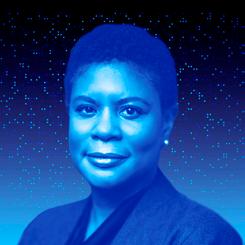
Former Acting Director, White House Office of Science and Technology Policy; Harold F. Linder Professor, Institute for Advanced Study

A scholar of the intersections of science, technology, policy, and society, Alondra Nelson is the Harold F. Linder Professor at the Institute for Advanced Study, an independent research center in Princeton, New Jersey. She is also a distinguished senior fellow at the Center for American Progress.
Dr. Nelson was formerly Deputy Assistant to President Joe Biden and acting director of the White House Office of Science and Technology Policy (OSTP). In this role, she was the first African American and first woman of color to lead US science and technology policy. At OSTP, she spearheaded the development of the Blueprint for an AI Bill of Rights, provided gudiance to expand tax-payer access to federallyfunded research, served as an inaugural member of the Biden Cancer Cabinet, strengthened evidence-based policymaking, and galvanized a multisector strategy to advance equity and excellence in STEM, among other accomplishments. Including her in the list of “Ten People Who Shaped Science in 2022,” Nature said of Nelson’s OSTP tenure, “this social scientist made strides for equity, integrity and open access.”
In 2023, she was named to the inaugural TIME100 list of the most influential people in the field of AI. A science and technology policy advisor, who has provided guidance to local, state, and federal governments, multilateral and intergovernmental organizations, legislators, civil society, and others, Dr. Nelson was nominated by the White House, and appointed by United Nations Secretary-General António Guterres, to serve on the UN High-Level Advisory Body on Artificial Intelligence.
An accomplished non-profit and higher education leader, Nelson was the fourteenth president and CEO of the Social Science Research Council, an independent, international research nonprofit organization. She led academic and research strategy at Columbia University,
where she was the inaugural Dean of Social Science and professor of sociology and gender studies. Dr. Nelson began her academic career on the faculty of Yale University, and there was recognized with the Poorvu Prize for interdisciplinary teaching excellence.
Her award-winning, widely acclaimed books and articles have been translated into Arabic and French. She is the author of The Social Life ofDNA:Race,Reparations,andReconciliationaftertheGenome. Her books also include BodyandSoul:TheBlackPantherPartyand theFightagainstMedicalDiscrimination, Genetics and the Unsettled Past:TheCollisionofDNA,Race,andHistory (with Keith Wailoo and Catherine Lee), and Technicolor:Race,Technology,andEveryday Life (with Thuy Linh Tu). In 2002, Nelson edited “Afrofuturism,” an influential special issue of SocialText, drawing together contributions from scholars and artists who were members of a synonymous online community she established in 1998. She is currently writing a book about science and technology policy in the Obama-Biden and BidenHarris administrations; “Society after Pandemic,” an essay collection; and engaged in new research on the social power of the “platform” and the governance of artificial intelligence.
Dr. Nelson has held visiting professorships and fellowships at the Max Planck Institute for the History of Science, the BIOS Centre at the London School of Economics, the Bayreuth Academy of Advanced African Studies, and the Bavarian American Academy. Her research has been supported by the Ford Foundation, the Andrew W. Mellon Foundation, the Alfred P. Sloan Foundation, the Heising-Simons Foundation, the John D. and Catherine T. MacArthur Foundation, and the National Science Foundation.
Nelson has contributed to national policy discussions on inequality and on the social implications of new technologies, including artificial intelligence, big data, and human gene-editing in Science, PLOS: ComputationalBiology,GeneticsinMedicine,PLOS:Medicine, and the American Journal of Public Health. Her essays, reviews, and commentary have appeared in The NewYork Times, TheWashington Post, The Wall StreetJournal, Nature, ForeignPolicy, Le Nouvel Observateur, ForeignAffairs, and on CNN, National Public Radio, BBC Radio, the New Yorker Radio Hour, and PBS Newshour, among other venues.
She is an elected member of the National Academy of Medicine (NAM), the American Academy of Arts and Sciences, the American Philosophical Society, the Council on Foregin Relations, and an elected fellow of the American Association for the Advancement of Science and the American Academy of Political and Social Science. Before joining the Biden-Harris Administration, Nelson was co-chair of the NAM Committee on Emerging Science, Technology, and Innovation and was a member of the National Academies of Sciences Committee on Responsible Computing Research.
She is the recipient of honorary degrees from Northeastern University, Rutgers University, and the City University of New York. Her honors also include the EPIC Champion of Freedom Award, the Federation of American Scientists Public Service Award, the Sage-CASBS Award, the MIT Morison Prize, and the inaugural TUM Friedrich Schiedel Prize for Social Sciences and Technology.
Nelson is an advisor to the Obama Presidency Oral History Project. Prior to her White House appointment, she served on the Boards of the American Association for the Advancement of Science, the Andrew W. Mellon Foundation, the Russell Sage Foundation, the Teagle Foundation, United States International University: Africa (Kenya), the Data & Society Research Institute, and the Center for Research Libraries, and as a member of the International Board of Overseers of Sabancı University (Türkiye). She is currently a member of the Board of Directors of the Brotherhood/Sister Sol—a Harlem youth development organization, the Rockefeller Archive Center, the Innocence Project, and Mozilla.
Raised in Southern California, Dr. Nelson is a magnacumlaude graduate of the University of California at San Diego, where she was elected to Phi Beta Kappa. She earned her PhD from New York University in 2003.
She lives in New York City and Princeton with her husband and stepson.
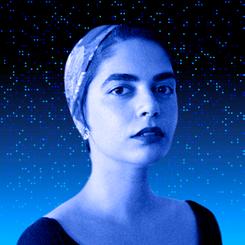
Senior Research Scientist at Google Research
Rida is a multidisciplinary scholar of AI in the Global South. Her work reimagines AI design and deployment to center the expertise, knowledge, and agency of global communities through critical, ethnographic and participatory methods. She has published widely in top-tier venues across the social sciences and computer science, including BigData& Society,ComputerSupportedCooperativeWork, CHI and FAccT. Her work has appeared in publications like Wired,Guardian, Slate and Vice. She sits on the editorial board of the journal Cambridge Forum on AI: Culture and Society. She holds a PhD in Computational Urban Science and a Master’s in Urban Studies from MIT.
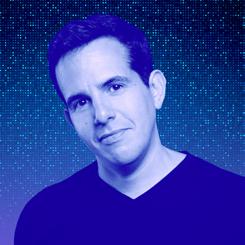
Senior Director, Design, Research and Content at Welltech
Dr. Raz Schwartz (he/him) leads the design, user research and content teams at Welltech. Raz and his team are focused on creating innovative products that help people around the world live healthier lives.
Before joining Welltech, Raz led the new product innovation team at Spotify and managed the AR/VR research team for Oculus at Meta. Prior to Facebook, Raz was a postdoctoral researcher at Cornell Tech and Rutgers University as well as a research fellow at the Brown Institute for Media Innovation at Columbia Journalism School and Carnegie Mellon University Human Computer Interaction Institute. Raz’s work was published in various academic settings and was featured in media outlets such as the Wall Street Journal, Wired, Rhizome, and The Atlantic.

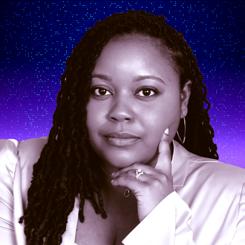
Breigha Adeyemo is a PhD Candidate in the Department of Communication at the University of Illinois at Chicago (UIC), also pursuing a certificate in Black Studies. She is a communication and STS scholar whose work is at the intersections of technology, social justice, capitalism, and democracy. Her dissertation examines how the metaverse operates within the framework of racial digital capitalism. She’s particularly interested in how women of color navigate this digital landscape and the innovative ways they resist its constraints. Ultimately, Breigha envisions a world where technology is democratized—where its design and implementation are shaped by principles of justice and inclusivity.

Abdullah Ali is an Undergraduate Research Assistant under Professor Michael E. Papka in the Electronic Visualization Laboratory, an interdisciplinary research laboratory in the UIC College of Engineering’s Computer Science department and an Augmented AI Researcher at Argonne National Laboratory. He is currently pursuing his bachelor’s degree in Computer Science in the College of Engineering at UIC.
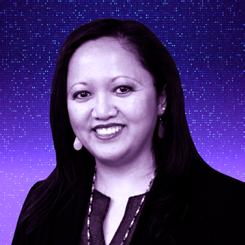
Anna Romina Guevarra is Professor and Founding Director of the Global Asian Studies Program at the University of Illinois Chicago. She also serves as a Co-PI of the Asian American Native American Pacific Islander Serving Institution (AANAPISI) Initiative. She is an interdisciplinary scholar whose scholarship and pedagogy are informed by transnational and decolonial feminist theories, political economy, and critical race/ethnic studies. Her body of work addresses issues related to labor, the geopolitics of carework, food studies, science and technology studies, the Filipinx/a/o diaspora, and community engaged work that centers just, equitable and reciprocal engagements with communities. She is the author of numerous works including award-winning publications like MarketingDreams,Manufacturing Heroes:TheTransnationalLaborBrokeringofFilipinoWorkers (Rutgers University Press, 2010) and Mediations of Care: Brokering Labour in the Age of Robotics (Pacific Affairs, 2018). She is the co-founder (with Gayatri Reddy) of the public history project Dis/Placements:APeople’s HistoryofUptown,Chicago (https://dis-placements.com), which maps urban removal projects and resistance movements currently underway in Chicago. She was a Public Voices Fellow of the OpEd Project and works with a number of community organizations that focus on racial and economic justice, immigration rights, and cross-racial solidarity work. Her PhD is in Sociology from the University of California San Francisco. Learn more about her scholarship, publications, and teaching here: https://annaguevarra.com.
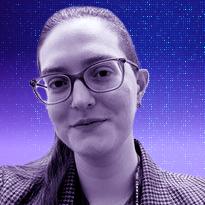
Marty Heath (they/them) is a PhD candidate in the Department of Communication at UIC, where they also received a certificate in Disability Ethics. They also serve as the Area Chair for the ‘Body & Culture Division’ of the Popular Culture Association. Their research brings together thinking from Feminist Studies, Disability Studies, and
STS to explore the intersections of disability and media.
Some of this work includes the analysis of popular and narrative media, while other projects focus on narratives of the self. Recently, they have been exploring assistive technologies as socially meaningful, communicative objects. Their dissertation engages interviews and visual analysis to explore how people who use prosthetic limbs relate to those objects as technologies which have functional, aesthetic, and social features & what narratives of prosthetic limb adoption tell us about what these objects mean to their users.
Marty has published in PuntOorgInternationalJournal, received awards for Top Student Papers for both the National and International Communication Associations, and been invited to speak about their research at the University of Oxford’s Rothermere American Institute and Arizona State University.

Steve Jones is a UIC Distinguished Professor of Communication and Adjunct Research Professor in the Institute of Communications Research at the University of Illinois at Urbana-Champaign. Jones’ books have earned him critical acclaim and interviews in national and international media. A co-founder of the Association of Internet Researchers, he has made numerous presentations focusing on the Internet’s social and commercial uses, and social changes in the Internet age. His research has been funded by the National Science Foundation, National Institutes of Health, Centers for Disease Control and the Tides Foundation.
Jones is Editor of New Media & Society, an international journal of research on new media, technology, and culture, and co-editor of Mobile Media & Communication, both with SAGE Publications. Jones is also co-editor of Digital Formations, a series of books on new media for Peter Lang Publishers. He has provided Internet consulting services to numerous corporations and not-for-profit organizations, and served as Senior Research Fellow at the Pew Internet & American Life Project.

Clare S. Kim (she/her) is an assistant professor of History and Global Asian Studies who specializes in the history of science and technology, STS, modern US and Asian American history, and critical race and media studies. Her scholarship examines the history of twentieth and twenty-first century mathematical and computational sciences, with a particular focus on their entanglements in US intellectual and political life. She is especially interested in the place of Asians and Asian Americans as targets and users of computation.
Kim’s first book project explores the post-World War II interplay of calculation and data management practices on the racialized dynamics of knowledge control and exchange in US-Asian relations. Her second book project traces the history of “cryptanalysis” from the First World War through the Cold War, examining how changing humanistic and computational practices collectively participated in military intelligence work and became embedded in ideas about security. Her work has been published and featured in journals and other media including Osiris, Techno-Orientalism Vol. II, and PRI’s The World. She has received fellowships and research grants from the National Science Foundation, MIT Center for International Studies, Notre Dame Institute for Advanced Study, and UIC Institute for the Humanities, among others.
Prior to joining UIC, Kim was a Mellon Postdoctoral Fellow in Modeling Interdisciplinary Inquiry at Washington University in St. Louis. She received her PhD from the Program in History, Anthropology, and Science, Technology, and Society at the Massachusetts Institute of Technology (MIT).

Do Own (Donna) Kim is an Assistant Professor at the University of Illinois Chicago’s Department of Communication. Donna studies everyday, playful digital cultures and mediated social interactions.
She is particularly interested in norms, hybridity, and what being human/artificial means in emerging technological contexts. She has written about topics like video games, virtual influencers, mobile technologies, and Korean digital feminism. Her work can be found in journals such as NewMedia&Society, International Journal of Communication, and ProceedingsoftheACMonHuman-Computer Interaction. Donna received her Ph.D. degree in Communication from the University of Southern California’s Annenberg School for Communication and Journalism. She is a Korea Foundation for Advanced Studies fellow alum.
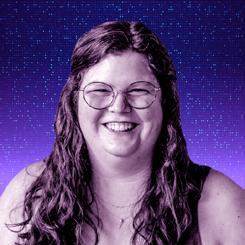
Abi Leveille is a doctoral student and teaching assistant in the Department of Communication at the University of Illinois at Chicago. She received her MA in the Social Sciences from the University of Chicago. She holds a BA in Theatre with minors in psychology and neuroscience from Lawrence University. Her research interests include identity performance in new media and video games, including representations of ADHD on TikTok. Her work has been recognized at the National Communication Association conference and published in SocialMedia+Society.
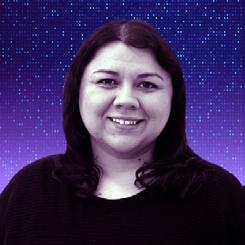
Elena Maris is an Assistant Professor in the Department of Communication at the University of Illinois at Chicago. Her research is concerned with media, technology, and society. She is particularly interested in the ways tech industries and users try to understand and influence one another. She also studies how people experience their identities through popular culture and the internet. Maris has expertise in user/industry relations, privacy, the politics of platforms and AI, audience measurement and social media metrics, digital fandom and online communities, and marginalized users. She is currently writing a book for the University of California Press about
the ways tech industries attempt to address the contextual limitations of technology, AI, and quantitative data. Maris is an Affiliate at the Data & Society Research Institute. Previously, she was a Postdoctoral Researcher with the Social Media Collective at Microsoft Research. Her work has been published in academic journals like New Media & Society, the InternationalJournal of Communication, the European Journal of Cultural Studies, and Feminist Media Studies. Her research has been featured in outlets like The NewYork Times, Wired, Marketplace, and Forbes. She has advised and shared her insights with organizations and companies like The Sundance Institute, The National Endowment for the Arts, Tumblr, and Xbox. Maris received her Ph.D. from the Annenberg School for Communication at the University of Pennsylvania.
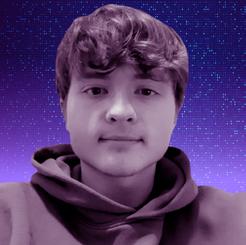
Ricky Massa is an Undergraduate Research Assistant under Professor Michael E. Papka in the Electronic Visualization Laboratory, an interdisciplinary research laboratory in the UIC College of Engineering’s Computer Science department. He is currently pursuing his bachelor’s degree in Computer Science in the College of Engineering at UIC.

Zachary J. McDowell is an Assistant Professor in the Department of Communication at the University of Illinois, Chicago. His research focuses on access and advocacy in digitally mediated peer production knowledge spaces and the creation of Artificial Intelligence. In particular, his research examines digital literacy, data representation, self-efficacy, and how information systems shape these areas of inquiry.

Zizi Papacharissi is UIC Distinguished Professor of Communication and Political Science at the University of Illinois-Chicago and Department Head of Communication. She is also University Scholar and affiliate faculty with the Discovery Partners Institute at the University of Illinois System. Her work focuses on the social and political consequences of online media. She has published 10 books, over 80 journal articles and book chapters, and serves on the editorial board of fifteen journals. Zizi is the founding and current Editor of the open access journal Social Media & Society. She has collaborated with Apple, Facebook/ Meta, Microsoft, Tencent, and Oculus and has participated in closed consultations with the Obama 2012 election campaign. She sits on the Committee on the Health and Well-Being of Young Adults, funded by the National Academies of Science, the National Research Council, and the Institute of Medicine in the US, and has been invited to lecture about her work on social media in several Universities and Research Institutes in Europe, Asia, Africa, and the Americas. Her work has been translated in Greek, German, Korean, Chinese, Hungarian, Italian, Turkish, and Persian. Her latest book, titled After Democracy: Imagining our Political Future, is out now, from Yale University Press. She is presently working on two new books on Connective AI and Digital Media and Democracy.
Zizi was born and raised in Thessaloniki, Greece, and graduated from Anatolia College in 1991. She received a full scholarship to Mount Holyoke College, where she completed a double BA in Economics and Media Studies (1995), and to Kent State University, where she received a Masters degree in Communication Studies (1997). Her studies were fully funded by fellowships and scholarships from both the Onassis Foundation and the University of Texas of Austin, where she received her PhD (2000) in New Media Technologies and Political Communication. She was recognized by her alma mater, UT-Austin, as a high-impact scholar, an honor bestowed to a handful of the School’s most productive and impactful doctoral graduates and is the 2018 recipient of the Wayne Danielson Award for the sum and impact of her contributions to the field. Recent award recipients include Elihu Katz, Ben Bagdikian, and Michael Schudson.
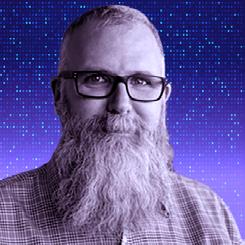
Michael E. Papka is a Warren S. McCulloch Professor of Computer Science at the University of Illinois Chicago (UIC) and a senior scientist at Argonne National Laboratory, where he serves as deputy associate laboratory director for Computing, Environment, and Life Sciences directorate and director of the Argonne Leadership Computing Facility. He also co-directs the Crabtree Institute, a joint institute between UIC and Argonne. Dr. Papka’s research focuses on advancing science through high-performance computing, artificial intelligence, large-scale data analysis, and visualization. Previously, he was a Presidential Research, Scholarship, and Artistry Professor at Northern Illinois University.

Kelly Quinn (PhD, University of Illinois Chicago) is a Clinical Associate Professor in the Department of Communication at the University of Illinois Chicago. Her interdisciplinary research focuses on how new media platforms, such as social media and conversational AI systems, intersect with privacy, aging, and social capital. As a founding member of the Comparative Privacy Research Network, Dr. Quinn actively contributes to the evolving research landscape related to digital privacy, examining how the practices of data collection, aggregation, and analysis reshape privacy and autonomy in a connected world. Dr. Quinn’s recent research projects have examined how smart speakers can enhance older adults’ physical well-being and how older persons consider and conceptualize privacy and autonomy when engaging in everyday monitoring practices, such as sharing their location with others or using in-home monitoring systems. She continues to engage in cross-disciplinary projects that address such critical issues as digital inequality, especially among older adults and in areas such as the privacy divide. Dr. Quinn has been invited to present her work internationally, recently speaking on the tensions between the dynamics between privacy, big data, and user agency. Her work on how
digital platforms, such as social media and smart devices, intersect with personal privacy and social relationships across different life stages has been published in many leading communication journals and edited collections.

Mike Reilley has spent the last nine years teaching Google News Initiative and other digital and AI-driven tools to nearly 15,000 journalists and educators in 450 trainings in 43 states. He’s currently the lead trainer for both the RTDNA/GNI Election Fact-Checking Program and the ONA/Microsoft AI in Journalism training program.
He also is co-founder of and trainer with Penny Press Digital LLC, a consulting and training company that has several clients, including Gannett. When he’s not doing trainings, he teaches data and multimedia journalism at UIC, where he is a full-time faculty member.
A former reporter at the LA Times and web editor at the Chicago Tribune, Mike served for 13 years as a faculty member at Northwestern, Arizona State University and DePaul University, teaching digital journalism to hundreds of students and professional journalists. An early adopter of the web, he is one of the 11 founding editors of ChicagoTribune.com.
He holds journalism degrees from the University of Nebraska-Lincoln (undergrad) and Northwestern University (masters). Mike also runs the Chicago data-driven news site, The Red Line Project (redlineproject.news).

Andrew Rojecki is Professor of Communication at UIC. He researches and teaches communication in three contexts: political movements,
racial politics, and globalization. He is the author of Silencingthe Opposition(University of Illinois Press, 1999) and co-author (with Robert Entman) of TheBlackImageintheWhiteMind (University of Chicago Press, 2000). The Black Image won the Goldsmith Book Prize awarded by the Kennedy School of Government at Harvard University (2002), the American Political Science Association Robert E. Lane Award for the best book in political psychology (2001) and the Frank Luther Mott--Kappa Tau Alpha Journalism/Mass Communication Book Award (2000).
His most recent book, AmericaandthePoliticsofInsecurity (Johns Hopkins University Press, 2016) analyzes the impact of the disruptions of globalization on American politics. His current lines of research include a collaborative effort with computer scientists on a natural language processing approach to textual analysis.

Olivia Sadler is a PhD Candidate at The University of Illinois Chicago. After completing her BA in Communication Studies with a minor in History from University of North Carolina Wilmington, she went on to earn her Masters in Communication at University of North Carolina Charlotte. Her research interests include popular music, digital cultural production, and algorithmic curation. Her dissertation aims to explore the role of TikTok, specifically its For You Page algorithm, as an intermediary in music circulation and consumption in young adult populations. She has presented her research at multiple scholarly conferences and was awarded Top Student Paper in the Popular Culture division at Central States Communication Association Conference and Top Student Paper in the Communication & Technology division at the International Communication Association Conference. She has published her research on TikTok & Protest Music in Social Media + Society. Olivia also has taught as an instructor of record as well as TA’d for a variety of courses at UIC. Following her completion of the program, Olivia hopes to continue researching and teaching at the university level.
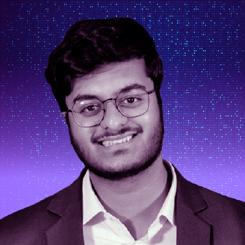
Aaqel Shaik is an Undergraduate Research Assistant under Professor Michael E. Papka in the Electronic Visualization Laboratory, an interdisciplinary research laboratory in the UIC College of Engineering’s Computer Science department. He is currently pursuing his bachelor’s degree in Computer Science in the College of Engineering at UIC.
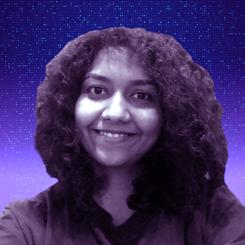
Shilpika is a Postdoctoral Appointee in the LCF Leadership Computing Facility organization. Her research focuses on data visualization and analysis of high-performance computing systems, including visualization and interpretation of AI for science to enable informed decision-making in AI workflows. Shilpika obtained an MS in Computer Science in 2016 from Loyola University Chicago and a Ph.D. in Computer Science in 2023 from the University of California Davis.

Samuel Hardman Taylor is an assistant professor in the Department of Communication at the University of Illinois Chicago. Sam studies interpersonal and psychological processes in social media, mobile phones, and other communication technologies. His research focuses on the implications of social media for personal relationships and psychological well-being. Sam’s work is focused on theorizing sociotechnical perspectives of online behavior, demonstrating the dynamic relationship between human behavior and communication technologies. He is interested in human-computer interaction,
emphasizing designing new technologies to support social connections, intimacy, and mental health. Sam has also worked with interdisciplinary teams to build new tools for social media analytics to advance computational social science research. His research has appeared in premiere communication journals as well as interdisciplinary outlets in computer science, information science, and psychology. He earned his PhD in Communication from Cornell University, where he was a member of the Social Media Lab. Sam advises graduate students in the Chicago Social Media Lab.

Cindy Tekobbe is an assistant professor in critical feminist science and technology at the University of Illinois Chicago. She researches and writes about digital literacies, identities, pedagogies, methodologies, cultures, and activism. Weaving together traditional stories and contemporary case studies, Tekobbe’s 2024 monograph, Indigenous VoicesinDigitalSpaces, published by Utah State University Press, represents the culmination of six years of research in online indigeneity, focusing on the work of activists and artists on Facebook, Twitter, and cryptocurrency platforms. This monograph introduces innovative feminist and decolonial digital methodologies to the fields of internet research, rhetoric, and communications. Tekobbe has also published over 14 articles and chapters on gendered online harassment, cryptocurrencies, social media, post-truth, and white supremacy in academic and general interest venues such as Information CommunicationandSociety, Newsweek, enculturation, and Present Tense. Prior to her academic career, Tekobbe was a software developer for web-enabled technologies. Her experience gives her insight specifically into the values and stigmas that are imbued in technologies in the development process, including gender, racial, and identity biases. She is a Public Voices Fellow of the OpEd Project and an Institute for Research on Race and Public Policy Fellow. Cindy Tekobbe is an enrolled citizen of the Choctaw Nation of Oklahoma.

Venkatram Vishwanath is a computer scientist at Argonne National Laboratory. He is the Data Science Team Lead at the Argonne Leadership Computing Facility (ALCF). His current focus is on algorithms, system software, and workflows to facilitate data-centric applications on supercomputing systems. His interests include scientific applications, supercomputing architectures, parallel algorithms and runtimes, scalable analytics and collaborative workspaces. He has received best papers awards at venues including HPDC and LDAV, and a Gordon Bell finalist. Vishwanath received his Ph.D. in computer science from the University of Illinois at Chicago in 2009.

ZIZI PAPACHARISSI
STEVE JONES
CLARE S. KIM
ELENA MARIS
MICHAEL E. PAPKA
JANE RHODES
CINDY TEKOBBE

